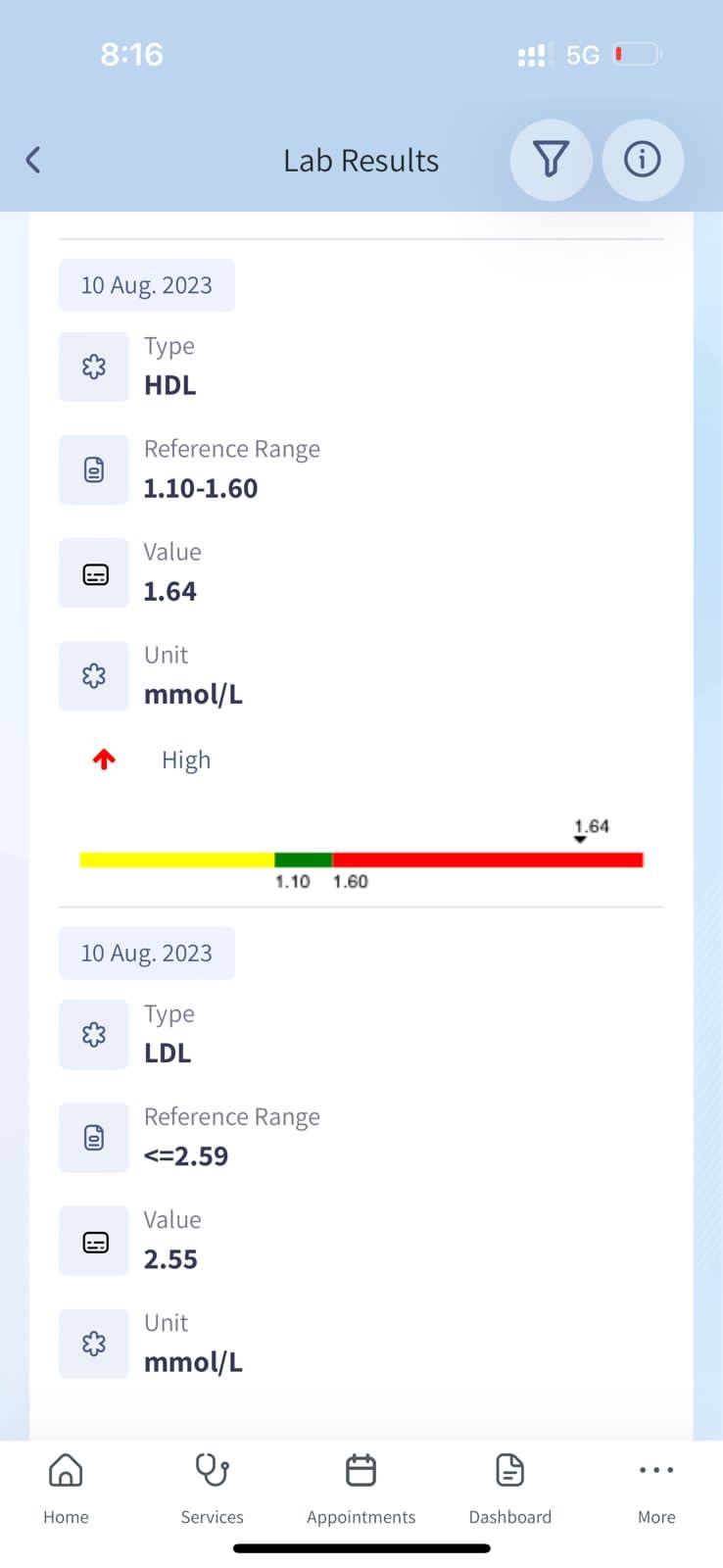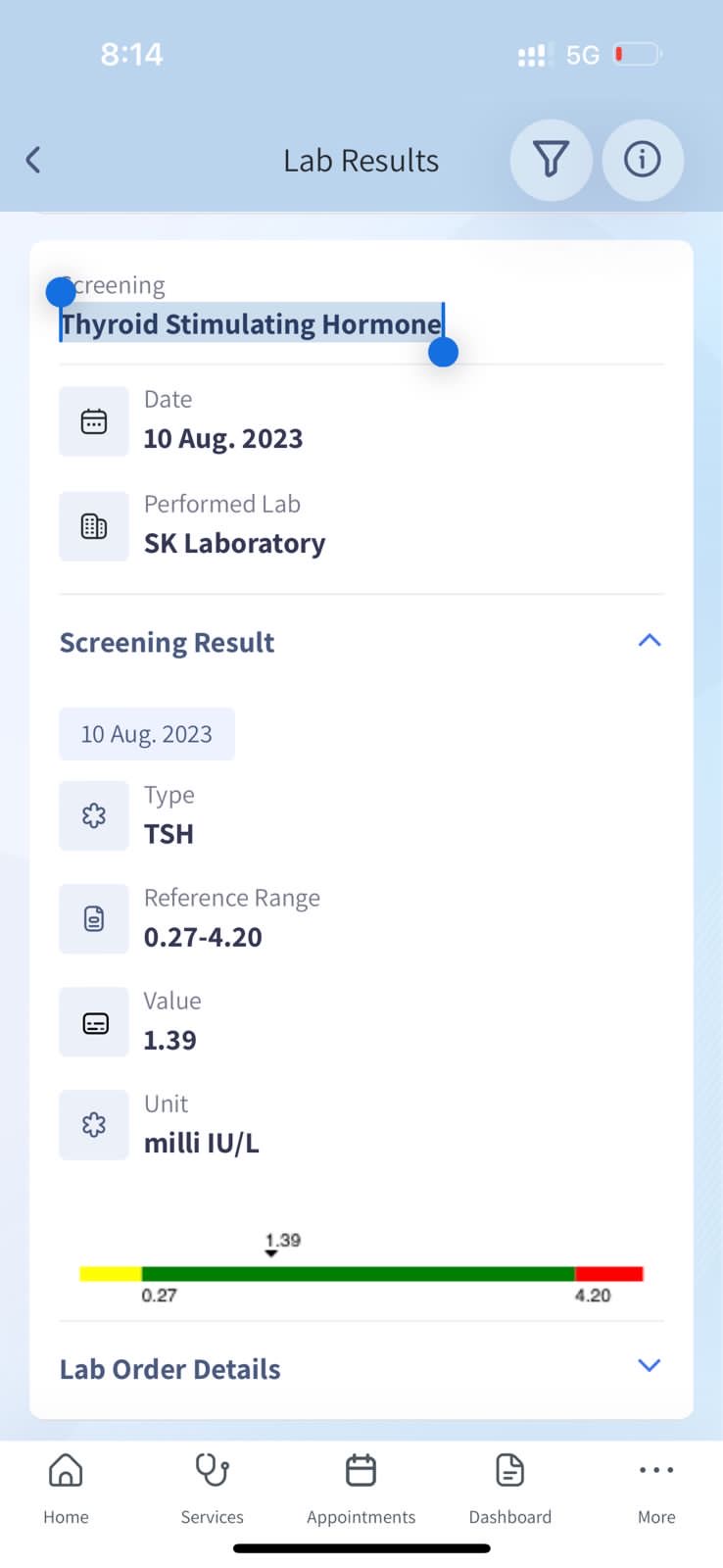BBetter Home Page › Forums › Ask Your Questions › Lab Tests, Markers & Interpretations › High cholesterol
-
High cholesterol
Posted by sara_alm369 on January 8, 2024 at 5:38 pmHello dear Bernadette and Daniel,I would like to inquire about your condition.
My sister has been suffering from weight loss for years and has been unable to eat. Her lifestyle is sleepy and she does not like to move. She suffers from viscosity in the bile fluid and high cholesterol, and unfortunately she has indigestion.
She is 25 years old. What should I do with her?
She wants to restore her health with a healthy regimen.
These are the reports I got.
sara_alm369 replied 10 months, 1 week ago 3 Members · 3 Replies -
3 Replies
-
Hey @Sara Almansoori,
She could do many things to improve her lifestyle, but perhaps you could help us describe her lifestyle a bit more. For example:
– How would you describe her diet?
How would you describe her diet?
Is she continuously tired? Is she tired after eating food?
How is her sleep? Does she sleep easily? Does she wake up at night? And how many hours does she sleep?
What symptoms does she experience when she has indigestion? Is she easily full? Does she experience bloating? Heartburn? Nausea? Are her symptoms more in the upper GI tract? Or lower GI tract?
Another question which would help me to answer your question:
How do you know your sister suffers from viscosity in the bile fluid?
Regarding these lab values, your sister has indeed high cholesterol. Her HDL is slightly elevated (even if the arrow in the HDL bar has been drawn far to the right, the absolute value is just slightly too high). Her LDL cholesterol is in range. LDL is the type of cholesterol we often see elevated when people have insulin resistance or when people eat a high-calorie/high-fat diet.
Although less seen, HDL can be elevated. HDL cholesterol can for example act as an antioxidant, indicating the body is dealing with oxidative stress. I can’t tell you what the source of the oxidative stress is. It could be a lack of nutrients if she has trouble taking care of herself, something I often see when people are dealing with fatigue.
There could be more exposure to oxidative stress because her body is dealing with for example something inflammatory (like for example a simmering infection in the gut)
If you share a bit more about your sister’s lifestyle, I’ll see if I can give you more targeted tips!
-
@Sara Almansoori in addition to Daniel’s questions, I’m curious to know if she’s ever been tested for Celiac disease, and although her TSH seems to be “normal” if she’s ever had a full thyroid panel including thyroid antibodies for hyperthyroidism.
Does she suffer from digestive symptoms that could indicate possible dysbiosis and parasites? These could lead to weight loss as well due to nutrient malabsorption.
-
@Daniel Schepers Thank you for your cooperation and response to your questions.
The genetics doctor told her after conducting tests with the devices that there was viscosity in the bile fluid.
* How would you describe her diet?
– she eat all the main three meals. Mostly she eat home food but usually it has lots of oil. She eat everything such as meat chicken fish egg and vegetables. She doesn’t like to eat lots of dairy.* Is she continuously tired? Is she tired after eating food?
Sometimes she feels tired for example after she woke up. Mostly she doesn’t feel having full energy. Yes while she eating she feels pain in her stomach and feels heavy. Also after eating food she feels discomfort.* How is her sleep? Does she sleep easily? Does she wake up at night? And how many hours does she sleep?
Mostly hard to fall asleep. she take long time in bed until she fall in a deep sleep. yes she woke up at night because she have a baby. Usually she sleep from 7-8 hours.
* What symptoms does she experience when she has indigestion? Is she easily full? Does she experience bloating? Heartburn? Nausea? Are her symptoms more in the upper GI tract? Or lower Gl tract?
Mostly she has constipation. Yes she easily full. she experience bloating. Mostly the symptoms more in the upper GI tract.
Log in to reply.

